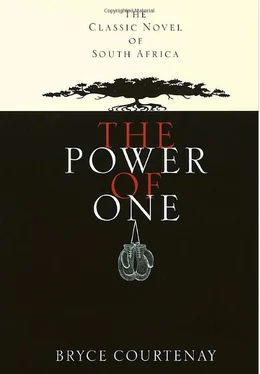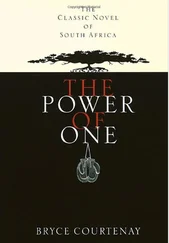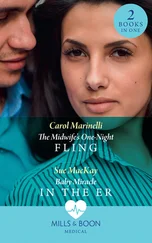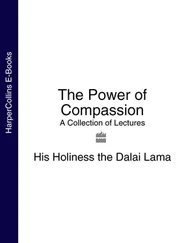Брайс Куртенэ - The Power of One
Здесь есть возможность читать онлайн «Брайс Куртенэ - The Power of One» весь текст электронной книги совершенно бесплатно (целиком полную версию без сокращений). В некоторых случаях можно слушать аудио, скачать через торрент в формате fb2 и присутствует краткое содержание. Жанр: Современная проза, на английском языке. Описание произведения, (предисловие) а так же отзывы посетителей доступны на портале библиотеки ЛибКат.
- Название:The Power of One
- Автор:
- Жанр:
- Год:неизвестен
- ISBN:нет данных
- Рейтинг книги:3 / 5. Голосов: 1
-
Избранное:Добавить в избранное
- Отзывы:
-
Ваша оценка:
- 60
- 1
- 2
- 3
- 4
- 5
The Power of One: краткое содержание, описание и аннотация
Предлагаем к чтению аннотацию, описание, краткое содержание или предисловие (зависит от того, что написал сам автор книги «The Power of One»). Если вы не нашли необходимую информацию о книге — напишите в комментариях, мы постараемся отыскать её.
The book is made to movie with the same name.
The Power of One — читать онлайн бесплатно полную книгу (весь текст) целиком
Ниже представлен текст книги, разбитый по страницам. Система сохранения места последней прочитанной страницы, позволяет с удобством читать онлайн бесплатно книгу «The Power of One», без необходимости каждый раз заново искать на чём Вы остановились. Поставьте закладку, и сможете в любой момент перейти на страницу, на которой закончили чтение.
Интервал:
Закладка:
The concert would always end with the All Saints Anglican church choir singing ‘White Cliffs of Dover’ with the audience joining in. To show the Rooinek majority where their unspoken loyalty lay the warders and their families would leave the town hall prior to the mass rendition of ‘White Cliffs’. This would be accompanied by some booing and catcalls from less well-bred members of the remaining audience.
Germany had covertly helped the Boers during the Boer War. Apart from arms and ammunition sold for profit, she had donated food and medical supplies and had even sent medical orderlies and doctors to the harassed Boers who, due to the British scorched earth policy, were dying less from the aim of the British Lee-Metfords than from a land which could no longer feed them. To the Boers, Germany was an old and trusted friend in a country where a contract was a handshake and declared friendship a bond that continued beyond the grave. Anti-Semitism in the Dutch Reformed Church, where Jews were thought of as Christ-killers, had always existed and the concept of the superiority of some races over others was never for one moment in doubt. In this context, to many Boers Adolf Hitler was only doing his job and, to some minds, doing it damn well.
After the warders and other Nazi-sympathisers had walked out the remainder of the audience would stand up, lock arms and sing ‘White Cliffs of Dover’ at least twice to confirm doubly their love for a Britain facing her darkest hour. To bring the concert to a tearful close the concert party, with warders and other Afrikaners missing, would gather on the stage, each of us holding a long-stemmed rose delivered earlier by me as a sign of our family’s inherent good breeding. With the misty-eyed audience fresh from the mawkishly sentimental journey to a country most of us would never see, we stood to rigid attention while a scratchy 78 r.p.m. rendered ‘God Save the King’. Whereupon the cast hurled the long-stemmed roses into the audience.
My granpa, my mother and I then walked home, having politely refused the Mayor’s invitation to the traditional post-concert party for the cast at the Phoenix Hotel. Worldly parties typified by one such as this, where drinking, smoking and dancing took place, were pretty high up on the Lord’s banned list.
The next issue of the Goldfields News would report the concert with the warder walkout splashed across the front page. Tongues wagged for days. Important people suggested the military be brought in to wipe out this nest of Nazi vipers or that the prison be moved to Nelspruit, an Afrikaans town forty miles away, where most of the prisoners probably came from in the first place.
My granpa, with his experience in fighting the Boers, had once been canvassed for his opinion by Mr Hankin, the editor of the Goldfields News . But they didn’t print what he said. What he said was: ‘I spent most of the Boer War shitting my breeches as a stretcher bearer. The only thing those buggers do better than music is shoot. Without them the concert wouldn’t be worth a cardboard boot.’
Maybe Mr Hankin thought his newspaper gave the family enough publicity, because he never again asked my granpa for his opinion on anything, even though the prison warders did the same thing at every concert for the duration of the war. Mrs Boxall, who was the town’s correspondent on matters cultural, could always be relied on to devote most of her column, ‘Clippings from a Cultured Garden by Fiona Boxall’, to my performance. For days after it appeared my mother was in a state of dazed euphoria and I was conscripted to deliver a bunch of roses to the library twice a week for a month.
In the process of keeping faith with my mother, Doc instilled in me an abiding love for music. What my clumsy hands could never play I could hear quite clearly in my head. A love of music was, among his many gifts to me, perhaps the most important of them all, and he continued to teach me even after his calm and gentle life was thrown into turmoil, and the joy of being alone with him on the high cliffs and kranses was stolen from my childhood.
TEN
I had been enrolled at the local school when the new term began at the end of January. Six was the starting age for Grade One, but after a few days it was clear that my year spent in a mixed-age class at boarding school had put me well ahead of the rest of the kids. I was pushed up to Grade Three where I easily held my own against kids two years older than me. Doing the Judge’s arithmetic, my early grounding in reading, a comprehensive understanding of Afrikaans in a classroom of English-speaking kids coming without enthusiasm to the language for the first time, and Doc’s demand from our first day that I write up my field notes all gave me a hugely unfair advantage. I might possibly have been elevated even further but for the embarrassment it would have caused.
I quickly earned a reputation, rather unjustly, for being clever. Doc had persuaded me to drop my camouflage and not to play dumb. ‘To be smart is not a sin. But to be smart and not use it, that, Peekay, is a sin. Absoloodle!’ I had needed little encouragement. Under his direction my mind was constantly hungry, and I soon found the school work tedious and simplistic. Doc became my real teacher and school was simply time spent between eight and one o’clock when I would rush from the classroom to his cottage hidden in the cactus garden.
His thorny garden was a never-ending source of delight. It was half an acre on the more or less flat top of a small hill which overlooked the town and valley. A ten-minute climb to solitude, up a little dirt and rock road that led nowhere else. His cactus garden may well have been the best private collection of cacti and succulents in the world. I, who grew to be an expert on cacti, have never seen a better one.
Doc’s cottage had three rooms and a lean-to kitchen. The three rooms were called the music room, the book room and the whisky room. Each having its specified purpose: music, study and drinking himself to sleep. For in all things, even in drunkenness, Doc had a tidy mind.
In the first year we spent together I never once witnessed him drunk, though when I arrived just after dawn for my music lesson I often had to wake him, whereupon he would stumble outside to retch and cough. Then he would come to sit beside the Steinway, his blue eyes red-rimmed and dulled from the previous night’s whisky, his long fingers wrapped around the enamel mug of bitter black coffee I had made him on the Primus. Doc never talked about drinking. All he would sometimes say as I set my music out on the big Steinway was, ‘Pianissimo, Peekay, the wolves were howling in my head last night.’ I would look through my music for something soft and easy on the nerves. Perhaps this is why, as I grew older and more proficient, I seemed more attracted to playing Chopin. There is a great deal less fortissimo in a Chopin étude than in Liszt or Brahms and Doc’s early morning hangovers may, over that first year, have somehow inclined me to softer music.
It was the cactus garden which testified to ‘his problem with Doctor Bottle’, as my mother would call any person who ever held strong drink to their lips. Bordering both sides of the path for a hundred yards through the cactus garden were embedded Johnnie Walker bottles, their square bases shining in the sun like parallel silver snakes winding around the cactus and aloe and blazing orange and pink portulaca. Each bottle represented an attempt to obviate some private torture. Doc made no apology for his drinking. He seldom even mentioned it and when he did it was always blamed quietly and politely on the wolves, which I imagined slavering away, great red tongues lolling, gnashing teeth chomping up Doc’s brains.
Читать дальшеИнтервал:
Закладка:
Похожие книги на «The Power of One»
Представляем Вашему вниманию похожие книги на «The Power of One» списком для выбора. Мы отобрали схожую по названию и смыслу литературу в надежде предоставить читателям больше вариантов отыскать новые, интересные, ещё непрочитанные произведения.
Обсуждение, отзывы о книге «The Power of One» и просто собственные мнения читателей. Оставьте ваши комментарии, напишите, что Вы думаете о произведении, его смысле или главных героях. Укажите что конкретно понравилось, а что нет, и почему Вы так считаете.












